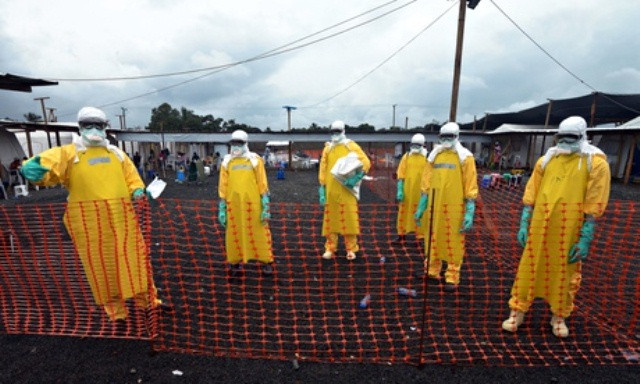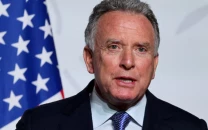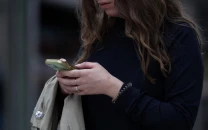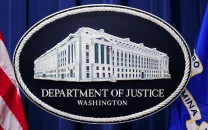New York confirms first Ebola case
The 33-year-old Craig Spencer has been placed in isolation

The 33-year-old - identified by US media as Craig Spencer - has been placed in isolation, in what is the fourth case of Ebola diagnosed in the United States and the first outside Texas.
The patient arrived back in America's largest city at JFK airport on October 17, travelling via Europe, after working with Ebola patients in West Africa for the charity Doctors Without Borders.
"Today testing confirmed that a patient here in New York City had tested positive for Ebola," New York Mayor Bill de Blasio told a late night press conference at Bellevue Hospital Center.
According to Spencer's CV on Linked In, he has been a fellow of international emergency medicine at Columbia University - New York Presbyterian Hospital for more than three years.
Officials said he monitored his temperature twice a day and attempted to self-isolate, only displaying symptoms on Thursday, a day after taking two subway trains to Brooklyn to go bowling.
The bowling alley in Williamsburg has since closed as a precaution.
New York City health department detectives have been tracing his movements and officials stressed there was no cause for alarm in the dense city of 8.4 million residents.
His fiancee and two friends, with whom he has been in close contact, are healthy and being quarantined, New York City health commissioner Mary Bassett told the news conference.
One of them was at the Bellevue on Thursday, officials said. Bassett stressed that none of them are displaying any symptoms and said there was no need to test them for Ebola.
A fourth person, the driver of an Uber taxi, had no direct physical contact with the patient and is not considered at risk.
But city officials were forced on the defensive over a slew of questions about Spencer's movements in the 48 hours before he displayed symptoms, but after he started feeling tired.
At some point, he went for a three-mile jog.
On Wednesday he not only took the subway to Brooklyn to go bowling, but visited the High Line, a popular elevated public park in Chelsea, and may have also gone to a restaurant, Bassett said.
Two nurses in Texas were diagnosed with Ebola after caring for Thomas Eric Duncan, a Liberian citizen who died of the disease, but who was initially sent home from hospital in Dallas.
The New York patient had no fever, diarrhoea, vomiting or loss of blood on the subway that would make him contagious, Bassett said.
"It is extremely unlikely, a probability close to nil that there would be any problem with him taking the subway system," she added.
Officials stressed that the disease, which has killed nearly 4,900 people in West Africa, is transmitted only through contact with an infected person's blood or other bodily fluids.
De Blasio said there was "no reason for New Yorkers to be alarmed. Ebola is an extremely hard disease to contract."
Officials said he completed his work in Guinea on October 12 and left the West African country on October 14 via Europe.
Bassett said he wore full protective gear and was not aware of any breach while working at the Ebola treatment center in Guinea.
Officials also sought to allay any alarm of the disease spreading among health workers treating him at Bellevue or among the first responders who transferred him from his home in West Harlem.
"He had a very orderly removal from his home and with emergency workers who were in full protective gear," she said.
He is on an isolation ward in intensive care where he is being treated by "experienced, seasoned health workers who all have been training for this purpose over the last months," she added.
His apartment is "locked and not accessible," she said.
Bellevue is one of eight in the state of New York equipped to handle patients diagnosed with Ebola.



















COMMENTS
Comments are moderated and generally will be posted if they are on-topic and not abusive.
For more information, please see our Comments FAQ